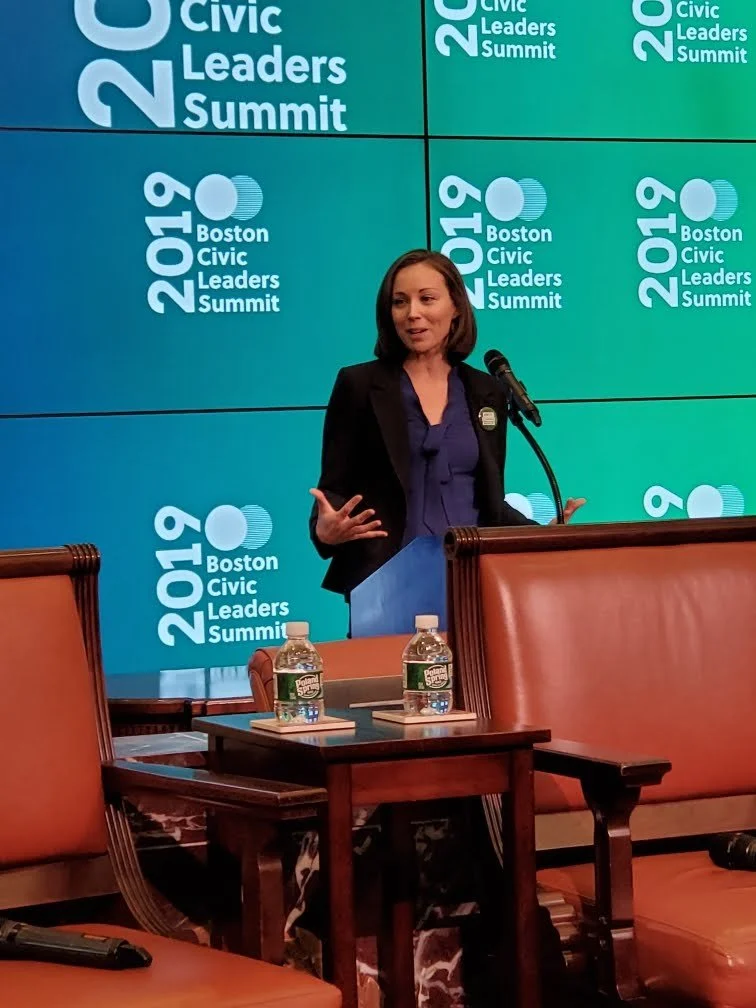Hi there, I’m Rachele!
I partner with mission-driven organizations to achieve lasting impact. Over the last 15 years, I’ve worked with a number of nonprofits, learning institutions, and local governments to advance peace, equity, and collective thriving. Compelled by a vision for shalom, meaning wholeness and flourishing for all, I take an asset-based and collaborative approach to social transformation, centering lived experience while also leveraging multi-sector partnership to activate opportunities for change. I draw from my diverse background in direct service, community organizing, research, collective impact, and nonprofit leadership.
I hold a Master of Social Work from Boston College and a Bachelor of Arts in Social Work and Youth Ministries from Gordon College. I enjoy occasionally teaching as an adjunct faculty member at Boston College, where I've taught courses on community engagement, social impact, and macro social work practice. I’ve co-authored a handful of publications, which I’ve linked below.
I live in Boston, Massachusetts, with my husband and two daughters, where I'm active in my local community. Outside of my work, you’ll most often find me enjoying the outdoors, both within and outside the city – running, hiking, biking, beaching, and traveling whenever I can!
For more information, check out my story below, review my work, or dive into my services.
Please reach out if you're interested in collaborating or just want to connect!
My (Professional) Story
I started my career in direct service work with systems-involved youth, first in a residential group home (2007-2009) and then as a life coach to young survivors of commercial sexual exploitation (2010-2012). These experiences grounded me in the harsh impacts of broken systems and in the resilience of those living with their effects. Inspired by the aspirations of these young people and angered by the systemic barriers they faced, I dedicated myself to systems change work.
I went on to earn my Master’s Degree in Macro Social Work from Boston College (2012), including completing my practicum at Dudley Street Neighborhood Initiative (DSNI). Through my time at DSNI and a concurrent opportunity to partner in a community planning process in my own neighborhood, I was introduced to community organizing, resident leadership development, and youth voice. Shortly thereafter I had the opportunity to launch Youth Hub (2014), a new initiative to support youth employment in my Codman Square neighborhood. Youth Hub was birthed in direct partnership with local youth and partner organizations and became a collaborative catalyst for youth leadership. At Youth Hub I began practicing Youth Participatory Action Research, supporting young people to investigate urgent issues impacting youth in the neighborhood and to develop and implement solutions.
When funding for Youth Hub dried up, I began my consulting practice to spread Youth Hub’s impact model and share my learning with other organizations. I supported a number of YPAR/PAR projects in Dorchester and Roxbury during this time, including Making Youth Voices Heard (2018), Pathways for Girls (2019), and the WOW Neighborhood Park Project (2020). I also began expanding my services to include program design, strategic planning, and resident leadership training. I worked with City Councilor Andrea Campbell to launch the Civic Empowerment Series (2018-2019) to support resident leadership in Boston’s District 4. Together we decided to scale this effort, and we launched the Boston Civic Leaders Summit in 2019, a free convening for 350 resident leaders across the city to connect, learn, and grow their local impact.
Building from the momentum of the Boston Civic Leaders Summit, I partnered on a grant project to explore collaborative governance models and practices. Through this grant, I co-founded the People’s Collaborative Governance Network (PCGN), which became an experimental space for co-designing solutions to challenges exacerbated by the COVID-19 pandemic, including digital literacy, food insecurity, inequitable development, and more. In addition to an incredible learning community, many important projects came out of PCGN, including Getting Connected, which still supports age strong residents to gain confidence with technology, and Just Engagement, a guide for institutions to practice inclusive engagement.
In 2021, I joined my PCGN collaborator at the Engagement Lab at Emerson College. While at the Engagement Lab, I co-founded Transforming Narratives of Gun Violence and Transforming Narratives for Environmental Justice, two robust initiatives aimed at advancing social impact through collaborative storytelling and design. Through these initiatives, I deepened my understanding of multi-sector collaboration and developed critical skills for collective impact. These initiatives engaged hundreds of students and community partners, and produced dozens of impactful art and media projects. They also introduced a new way of leveraging curricular programs within higher education for real impact in local communities, through robust and ongoing partnerships, strategically designed curriculum and project plans, and careful support of collaborative creation. Despite the close of the Engagement Lab in 2024, many of the projects are still being used to spark change.
Now, I have dedicated myself once again to applying my skills, experiences, and innovative spirit to support mission-driven organizations to achieve their visions. I am excited to partner with others in collaborative pursuit of peace, equity, and collective thriving.
Select Publications
DelSesto, M., Gardner, R., Edell, D. et al. Critical Collaboration in the Classroom: Sharing Power in the Co-Creation Process Among Faculty, Students, and Community Partners. Innov High Educ (2025). https://doi.org/10.1007/s10755-025-09840-x
Masiakos, P. T., Gordon, E., Gardner, R., Chéry, C. (2024). Transforming narratives of gun violence. New England Journal of Medicine, VOL. 391 NO. 8. https://www.nejm.org/doi/full/10.1056/NEJMp2408294
Gordon, E., Gardner, R., Chéry, C., Sacks, C., & Masiakos, P. T. (2024). Collaborative critical making in higher education: a case study of a community-centred storytelling effort to transform harmful narratives of gun violence in Boston. CoDesign, 1–20. https://doi.org/10.1080/15710882.2024.2329559
Gardner, R., Snyder, W., & Zuguy, A. (2019). Amplifying youth voice and cultivating leadership through participatory action research. Education Policy Analysis Archives, 27 (54). http://dx.doi.org/10.14507/epaa.27.2621.

